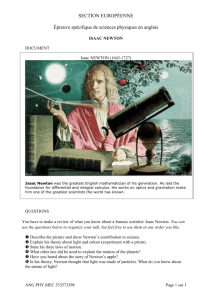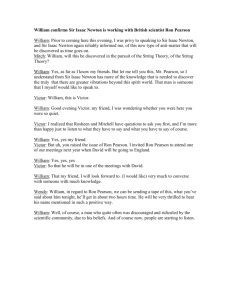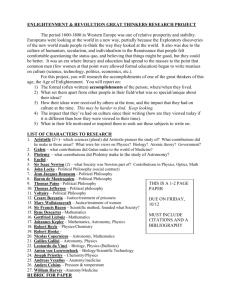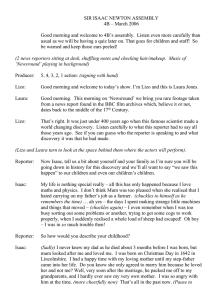ADVERTISEMENT By Benjamin Robins
advertisement
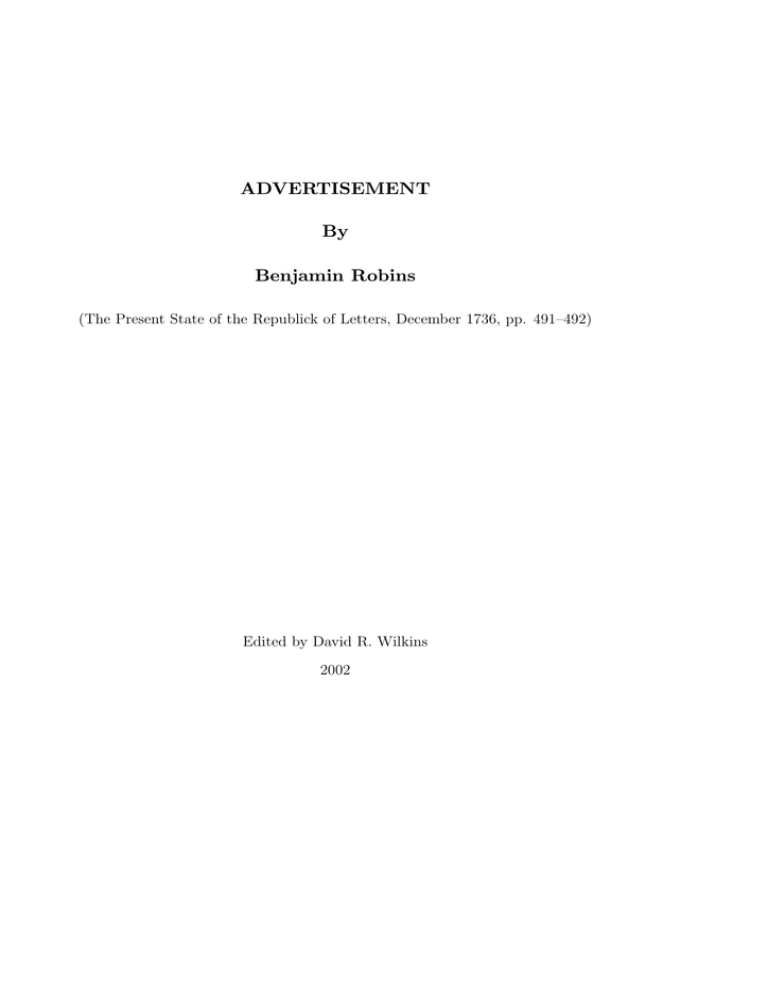
ADVERTISEMENT By Benjamin Robins (The Present State of the Republick of Letters, December 1736, pp. 491–492) Edited by David R. Wilkins 2002 NOTE ON THE TEXT This Advertisement appeared in The Present State of the Republick of Letters for December 1736. The following spellings, differing from modern British English, are employed in the original 1736 text: candor, meer, writ. David R. Wilkins Dublin, June 2002 i Advertisement. [The Present State of the Republick of Letters, December 1736, pp. 491–492.] The controversy in which I have been engaged with a Person, who screens himself under the fictitious name of Philalethes Cantabrigiensis, on occasion of what I have writ on Sir Isaac Newton’s Doctrine of prime and ultimate ratios, is now drawn out into a very great Length. Though I was no wise obliged to take notice of an unknown Author; yet I readily waved that scruple, not doubting but, whoever he were, he would behave with that temper, which is expected from a person of candor in debating upon a matter of meer speculation. But since Philalethes has given loose to passion, and is so far from any design of altering his conduct, that he attempts to justify it; I think it a very ill compliment from me to the publick to undertake a serious answer to the unadvised speeches of an angry Man; whose fondness for his own Opinions persuades him, that whoever presumes to differ from him must be insincere; and whose great unskilfulness in mathematical subjects causes him to mistake for a change in Sentiment every variation in expression intended to assist his apprehension. And as I have found by Experience, that what I have already writ has been informing to many, I cannot think any thing farther necessary for the satisfaction of impartial readers. I shall now therefore take leave of Philalethes with this observation only, upon the two points, whereon our controversy does indeed solely depend; his definition of nascent and evanescent quantities, and his interpretation of Sir Isaac Newton’s first Lemma relating to the doctrine of prime and ultimate ratios. In regard to the first, he has relinquished those passages of Sir Isaac Newton, where the terms quantitates nascentes and evanescentes are expresly discoursed of and explained; and labours to shelter himself under a definition of another term, the word moment, which definition is in a different and remote part of Sir Isaac Newton’s works. In relation to the Lemma he is reduced to take refuge in the manner, wherein Sir Isaac Newton had expressed that Lemma in the first edition of his book; that is to a manner of expressing it, which Sir Isaac Newton himself did not approve of, as appears by his altering it. But as I here promise Philalethes to give him no farther trouble; I leave him at full leisure to explain himself upon this definition and Lemma (if he so think fit) to my friend Dr. Pemberton. B. Robins. 1

